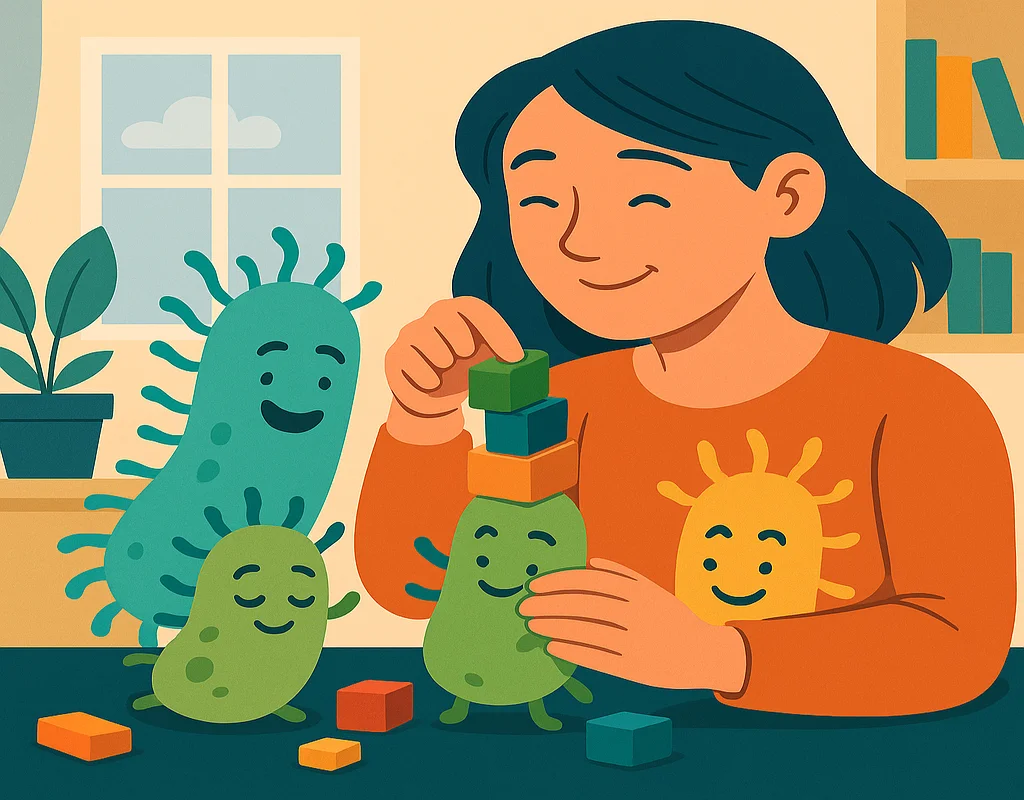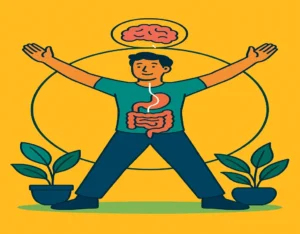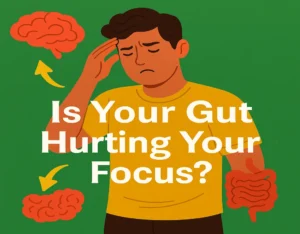
Are you tired of that persistent loop of stress, snappiness, and an overstimulated mind?
Do you feel like you’re doing all the things, the routines, the meditation apps, maybe even therapy, but something still feels fundamentally off?
You’re not alone in this. So many of us are searching for that missing piece.
What if I told you the real battle for your peace of mind isn’t just being fought in your head?
What if the key to unlocking a calmer, more resilient you is actually hidden… in your gut?
It might sound revolutionary, but emerging science is now powerfully confirming what ancient wisdom has hinted at for centuries: your gut health isn’t just about digestion. It’s a powerhouse that could be directly influencing how you feel, think, and handle everything life throws your way. And the most exciting frontier in mental wellness today? It’s not another complicated pill. It’s a humble, yet mighty, microbe.
So… What EXACTLY Are These “Psychobiotics” Everyone’s Starting to Talk About?
Imagine an elite team of beneficial microorganisms, living inside you, working specifically to enhance your mental and emotional well-being. That’s the essence of psychobiotics. They are a specialized class of probiotics – those live, friendly bacteria – that deliver tangible mental health benefits by powerfully interacting with your gut-brain axis.
Let me put it in plain English (because life’s complicated enough!):
Psychobiotics are specific “good” gut bacteria scientifically shown to positively influence your mood, your ability to think clearly, and how effectively you manage stress. Think of them as your personal, internal support system for a calmer mind and a more stable emotional state.
Unlike general probiotics primarily focused on digestive comfort (which is important!), psychobiotics are specialists. Their targeted mission? To help optimize your cognitive function and elevate your mood. They diligently work to help regulate:
- Your body’s natural “happiness chemical,” Serotonin production
- Key neurotransmitters like GABA and dopamine (crucial for calm, focus, and motivation)
- Your body’s stress response system (the HPA axis – like an internal stress dial)
- Gut barrier integrity, preventing inflammation (a notorious mood disruptor) from impacting your brain
Psychobiotics are shaping up to be a foundational pillar of next-generation mental health support. The incredible part? They work by nurturing your internal ecosystem first, helping you build resilience from the inside out.
The Gut-Brain-Mood Connection: Your “Second Brain” Is Constantly Communicating. Are You Listening?
Your gut is often called your “second brain” for very good reasons. It’s home to an astonishing network of over 100 million neurons and, remarkably, produces over 90% of your body’s serotonin – the vital neurotransmitter linked to mood, happiness, motivation, and focus.
So, what happens when this crucial “second brain” is out of balance, inflamed, or sending distress signals? The communication highway between your gut and brain gets jammed. Those mood-regulating chemicals are thrown off kilter. The frustrating, all-too-common results can include:
- Anxiety levels that feel overwhelming.
- Unpredictable mood swings.
- Poor quality sleep that leaves you drained.
- A diminished capacity to bounce back from life’s challenges.
And suddenly, all those well-intentioned habits and productivity strategies feel like they’re barely making a dent. It’s like trying to win a race with the emergency brake on!
The Science Behind This Shift: This Isn’t Wishful Thinking, It’s a Breakthrough.
I know what you might be thinking: “This sounds promising, but is it backed by real evidence?” Absolutely. Leading scientific journals like Psychiatry Research and Frontiers in Neuroscience are publishing compelling studies. The data clearly shows that specific strains of psychobiotics can:
- Significantly reduce cortisol (your body’s main stress hormone – imagine turning down the volume on daily stress!)
- Markedly improve resilience when you’re under pressure (helping you adapt and cope, rather than crumble).
- Noticeably lessen symptoms of anxiety and depression in both generally healthy individuals and those in clinical settings.
We’re talking about scientifically validated strains such as:
- Lactobacillus rhamnosus
- Bifidobacterium longum
- Lactobacillus helveticus
- Bifidobacterium breve
These aren’t just ordinary gut bacteria; they are biological mood regulators. This is about giving your body the precise tools it understands to help you feel and function at your best.
How to Cultivate Your Own Psychobiotic Powerhouse (Your Simple Action Plan)
Feeling unsure where to begin? Don’t be. You don’t need to be a scientist to make a profound difference. Here’s a straightforward plan to start working with your biology, not against it:
Step 1: Feed Your Friends – Nourish Your Beneficial Bacteria Once you introduce these microbial allies, you need to create an environment where they can thrive! Psychobiotics flourish with fiber and prebiotics. It’s simpler than you might imagine:
- Daily Fiber Boost: Add 1–2 tablespoons of ground flaxseed to smoothies, yogurt, or oatmeal.
- Resistant Starch Power: Include cooked and cooled rice or potatoes in your meals (the cooling process creates resistant starch, a feast for good bacteria).
- Dietary Diversity: Aim for a wide variety of plant-based foods – challenge yourself to include 25+ different types each week!
Step 2: Calm the Internal Environment – Reduce Inflammation Even the best psychobiotic strains struggle in a chronically inflamed gut. Give them a fighting chance by minimizing common inflammatory triggers:
- Reduce refined sugar intake.
- Limit processed seed oils (like canola, soybean, and corn oil).
- Be mindful of alcohol, especially on an empty stomach.
Remember, this is about consistent progress, not immediate perfection. The goal is to create an internal landscape where your mood-boosting microbiome can truly flourish and support you.
Real People, Real Transformations: The Impact Is Real.
I’ve personally implemented this approach during high-pressure work periods and stretches of poor sleep. The difference has been undeniable:
- More stable moods with fewer dips.
- Quicker emotional recovery from setbacks.
- Smoother, more sustained energy throughout the day.
And I’m not the only one. A reader recently shared their experience after just one week of dedicated psychobiotic support:
“I didn’t suddenly feel like a superhero. But for the first time in ages, I just felt… stable. That quiet, steady feeling? It has been an absolute game-changer for my daily life and my ability to cope.”
Can you imagine experiencing that kind of foundational stability, even when life feels chaotic? That’s the potential we’re talking about.
Bottom Line: Your Mental Well-being Isn’t Just “In Your Head.” It’s Deeply Rooted in Your Gut.
If you’ve been chasing calm, focus, and emotional balance through countless external methods and still feel like you’re spinning your wheels, it might be time to look deeper – to the very ecosystem within you.
The future of proactive mental wellness is here, and it begins in your microbiome. Stop fighting an uphill battle. Start supporting the right strains today, and empower your own biology to do the heavy lifting. You deserve to feel not just okay, but truly well, and the power to cultivate that is more accessible than you ever thought possible.



